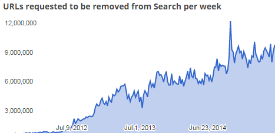 With a net income of more than $1 billion Elsevier is one of the largest academic publishers in the world.
With a net income of more than $1 billion Elsevier is one of the largest academic publishers in the world.
The company has the rights to many academic publications where scientists publish their latest breakthroughs. Most of these journals are locked behind paywalls, which makes it impossible for less fortunate researchers to access them.
Sci-Hub.org is one of the main sites that circumvents this artificial barrier. Founded by Alexandra Elbakyan, a researcher born and graduated in Kazakhstan, its main goal is to provide the less privileged with access to science and knowledge.
The service is nothing like the average pirate site. It wasn’t started to share the latest Hollywood blockbusters, but to gain access to critical knowledge that researchers require to do their work.
“When I was working on my research project, I found out that all research papers I needed for work were paywalled. I was a student in Kazakhstan at the time and our university was not subscribed to anything,” Alexandra tells TF.
After Googling for a while Alexandra stumbled upon various tools and services to bypass the paywalls. With her newly gained knowledge, she then started participating in online forums where other researchers requested papers.
When she noticed how grateful others were for the papers she shared, Alexandra decided to automate the process by developing software that could allow anyone to search for and access papers. That’s when Sci-Hub was born, back in 2011.
“The software immediately became popular among Russian researchers. There was no big idea behind the project, like ‘make all information free’ or something like that. We just needed to read all these papers to do our research,” Alexandra.
“Now, the goal is to collect all research papers ever published, and make them free,” she adds.
Of course Alexandra knew that the website could lead to legal trouble. In that regard, the lawsuit filed by Elsevier doesn’t come as a surprise. However, she is more than willing to fight for the right to access knowledge, as others did before her.
“Thanks to Elsevier’s lawsuit, I got past the point of no return. At this time I either have to prove we have the full right to do this or risk being executed like other ‘pirates’,” she says, naming Aaron Swartz as an example.
“If Elsevier manages to shut down our projects or force them into the darknet, that will demonstrate an important idea: that the public does not have the right to knowledge. We have to win over Elsevier and other publishers and show that what these commercial companies are doing is fundamentally wrong.”
The idea that a commercial outfit can exploit the work of researchers, who themselves are often not paid for their contributions, and hide it from large parts of the academic world, is something she does not accept.
“Everyone should have access to knowledge regardless of their income or affiliation. And that’s absolutely legal. Also the idea that knowledge can be a private property of some commercial company sounds absolutely weird to me.”
Most research institutions in Russia, in developing countries and even in the U.S. and Europe can’t afford expensive subscriptions. This means that they can’t access crucial research, including biomedical research such as cancer studies.
Elsevier’s ScienceDirect paywall

So aside from the public at large, Sci-Hub is also an essential tool for academics. In fact, some researchers use the site to access their own publications, because these are also locked behind a paywall.
“The funniest thing I was told multiple times by researchers is that they have to download their own published articles from Sci-Hub. Even authors do not have access to their own work,” Alexandra says.
Instead of seeing herself as the offender, Alexandra believes that the major academic publishers are the ones who are wrong.
“I think Elsevier’s business model is itself illegal,” she says, pointing to article 27 of the UN declaration on human rights which reads that “everyone has the right freely to participate in the cultural life of the community, to enjoy the arts and to share in scientific advancement and its benefits.”
The paywalls of Elsevier and other publishers violate this right, she believes. The same article 27 also allows authors to protect their works, but the publishers are not the ‘authors,’ they merely exploit the copyrights.
Alexandra insists that her website is legal and hopes that future changes in copyright law will reflect this. As for the Elsevier lawsuit, she’s not afraid to fight for her rights and already offers a public confession right here.
“I developed the Sci-Hub.org website where anyone can download paywalled research papers by request. Also I uploaded at least half of more than 41 million paywalled papers to the LibGen database and worked actively to create mirrors of it.
“I am not afraid to say this, because when you do the right thing, why should you hide it?” she concludes.
—
Note: Sci-Hub is temporarily using the sci-hub.club domain name. The .org will be operational again next week.
Source: TorrentFreak, for the latest info on copyright, file-sharing, torrent sites and the best VPN services.

 This week we have four newcomers in our chart.
This week we have four newcomers in our chart. Four years ago Google decided to publish detailed statistics of all the takedown notices it receives for its search engine.
Four years ago Google decided to publish detailed statistics of all the takedown notices it receives for its search engine. 
 Last week and after a technically complex hearing, a jury at the Appeal Court in Denmark again found Gottfrid Svartholm
Last week and after a technically complex hearing, a jury at the Appeal Court in Denmark again found Gottfrid Svartholm  With a net income of more than $1 billion Elsevier is one of the largest academic publishers in the world.
With a net income of more than $1 billion Elsevier is one of the largest academic publishers in the world.
 To millions of users around the world, BitTorrent is a beautiful thing. Not only does it enable the worldwide sharing of any kind of media, but the manner in which it does so is a stroke of pure genius.
To millions of users around the world, BitTorrent is a beautiful thing. Not only does it enable the worldwide sharing of any kind of media, but the manner in which it does so is a stroke of pure genius.